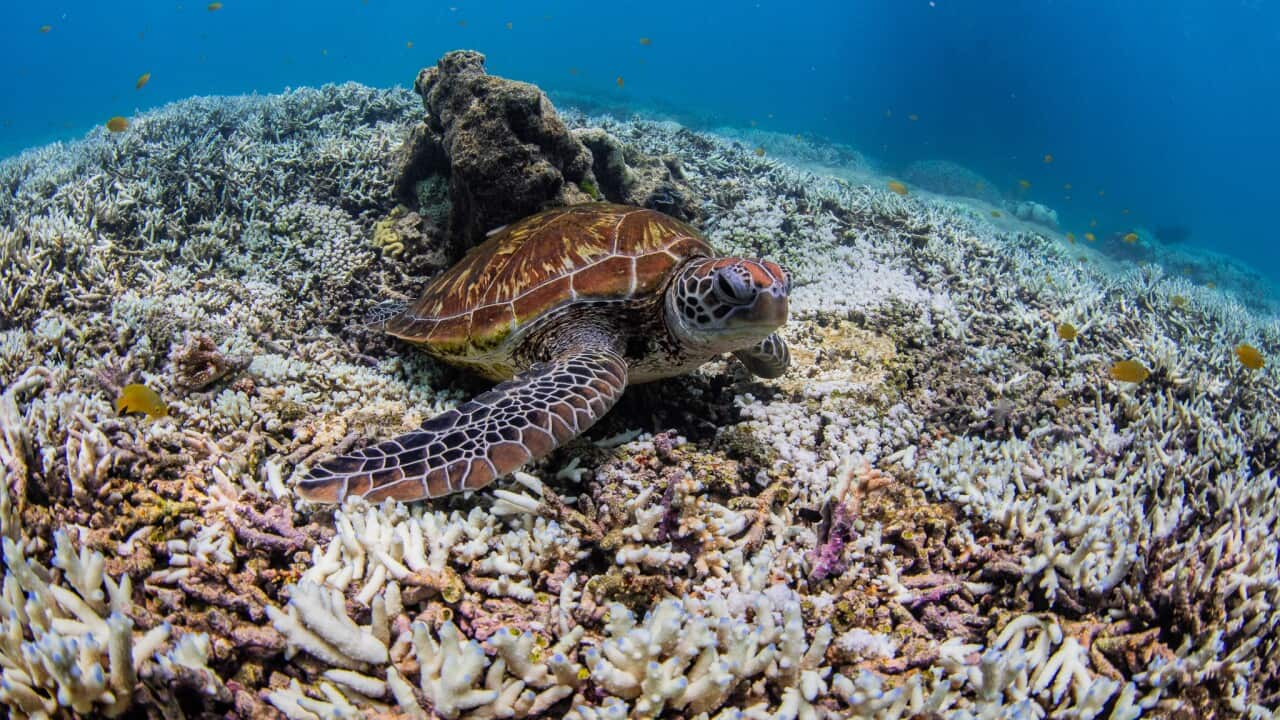Key Points
- The US National Oceanic and Atmospheric Administration has declared a fourth global coral bleaching event.
- Bleaching-level heat stress continues to be extensive across the Atlantic, Pacific, and Indian oceans.
- Since early 2023, mass bleaching has hit at least 53 countries, territories and local economies.
The world is currently experiencing its second major coral bleaching event in 10 years, with reef systems from Australia to Florida teetering on the brink of disaster following months of record-breaking ocean heat, a US agency announced on Tuesday.
The consequences of coral bleaching are far-reaching, affecting not only the health of oceans but also the livelihoods of people, food security, and local economies.
The declaration by the US National Oceanic and Atmospheric Administration comes as Australia’s Great Barrier Reef suffers its fifth mass bleaching event in eight years.
NOAA’s heat-stress monitoring is based on satellite measurements from 1985 to the present day. The current bleaching event is the fourth on record, with previous events in 1998, 2010 and 2016.
Some experts now question whether Australia’s World Heritage-listed reef system is on the verge of a tipping point, where events occur so frequently corals cannot recover.
Derek Manzello is the coordinator of NOAA’s Coral Reef Watch, which serves as the global monitoring authority on coral bleaching risk.
He says bleaching-level heat stress continues to be extensive across the Atlantic, Pacific, and Indian oceans.
“From February 2023 to April 2024, significant coral bleaching has been documented in both the northern and southern hemispheres of each major ocean basin,” Manzello said.
Since early 2023, mass bleaching has hit at least 53 countries, territories and local economies, including Australia’s South Pacific neighbours Fiji, Vanuatu, Tuvalu, Kiribati, and Samoa.
Bleaching driven by climate change is not always fatal but corals are likely to die if temperatures remain higher than normal for too long.
Even if corals don’t die, bleaching makes them more vulnerable to disease and can hurt reproduction. And if excessive heat occurs too frequently corals can be denied the time they need to recover.
That’s why experts such as Professor Ove Hoegh-Guldberg, from the University of Queensland, are so distressed by what’s again occurring on the Great Barrier Reef.
“One of the big questions that’s on everyone’s minds is whether we are going to suddenly see tipping points,” says Hoegh-Guldberg, who is also the chief scientist at the Great Barrier Reef Foundation.
“The ability to bounce back may disappear as the temperatures rise to a point where every year is a bleaching year, which means an average coral that has to have 15 years to grow up and have babies won’t have enough time to do that before the next event.”
Earlier this month, the Great Barrier Reef Marine Park Authority reported bleaching on 75 per cent of more than 1,000 individual reefs surveyed from the air, with half suffering high or very high levels of damage.
The authority’s chief scientist Roger Beeden says the reef is under significant stress.
The southern section of the marine park has been most severely affected by heat stress, with impacts slightly lower in the central and northern regions.
“There’s definitely a gradient of heat stress across the park,” he told AAP.
But he says the reef is robust and it remains to be seen how much bleached coral will die, noting past events have had variable outcomes.
Veteran reef scientist Terry Hughes is an emeritus professor at James Cook University and sits on an independent panel of reef experts that advises the government.
He says the Great Barrier Reef is in the grip of its worst bleaching and mortality event on record.
“The government is understating the extent and severity of this event,” he warned.
“I think they are being very cautious with the publicity around this because of the upcoming World Heritage Committee meeting.”
The federal government is trying to keep the reef off the list of World Heritage sites in danger, with the matter to be considered by the World Heritage Committee in July.
It recently dispatched its special envoy for the reef, Senator Nita Green, and the head of the marine park authority, to Paris to meet with UNESCO.
